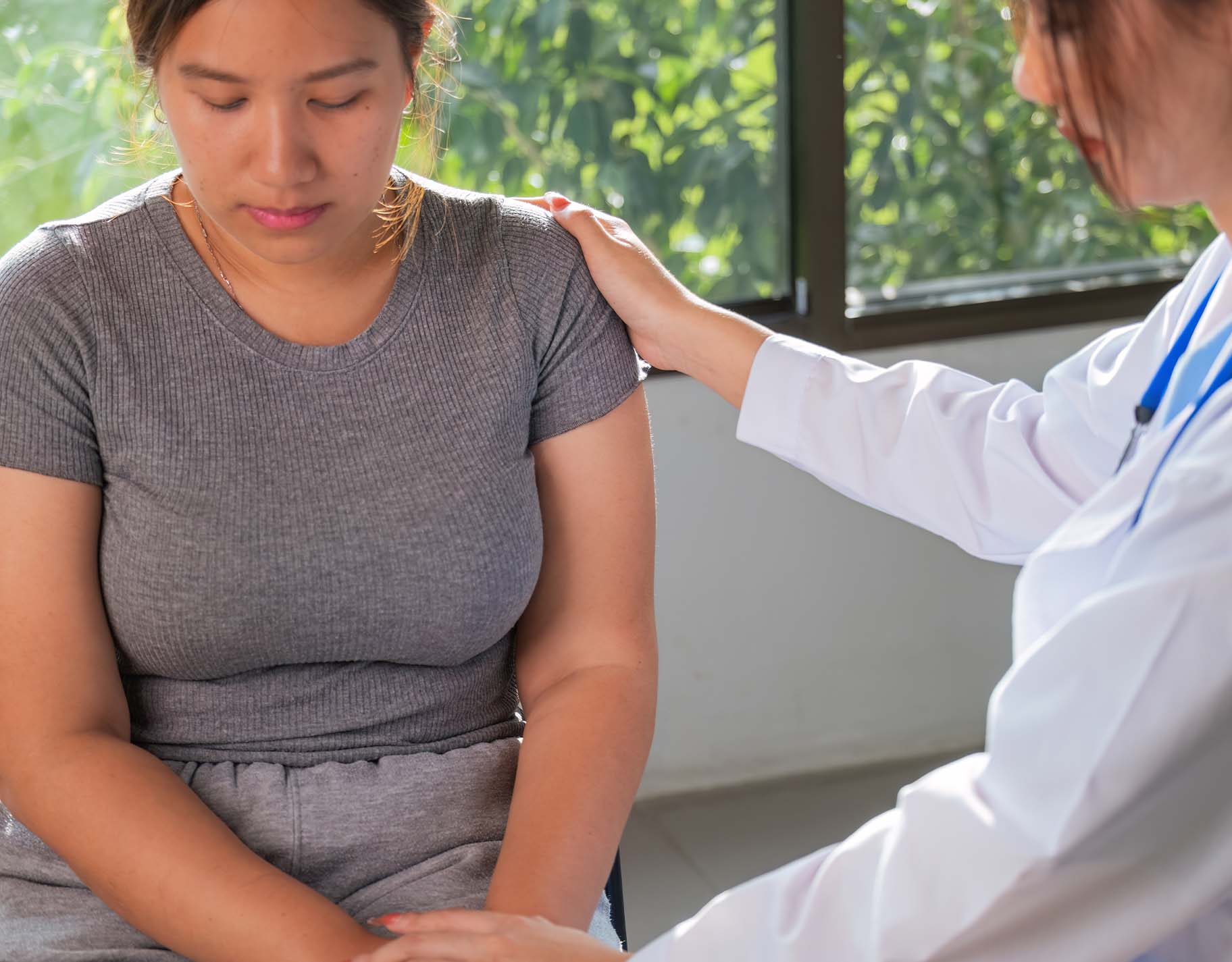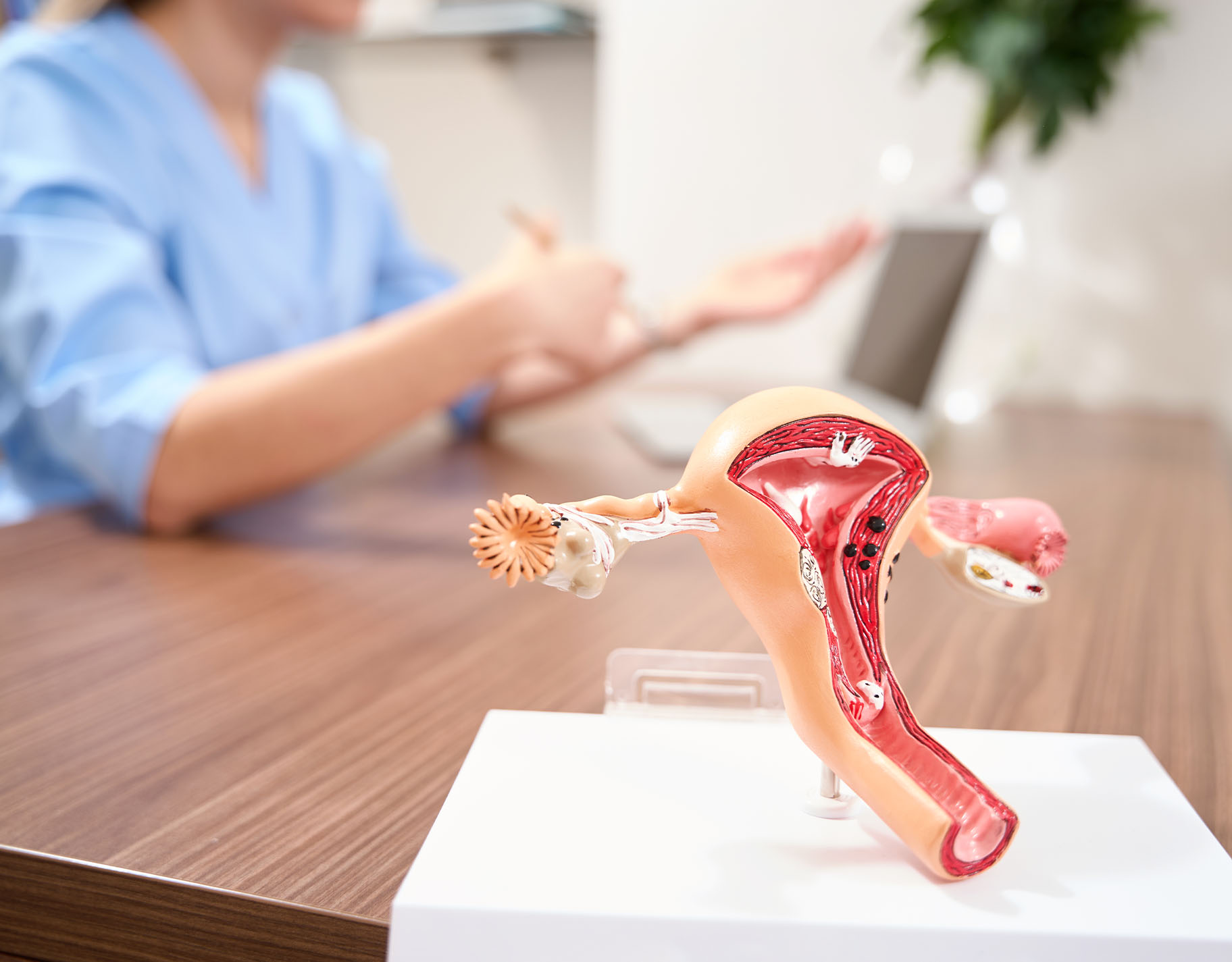7 Things Moms Should Know About Polycystic Ovarian Syndrome (PCOS)
For many moms, Polycystic Ovarian Syndrome sounds so new! But with many young women (or their daughters) suddenly getting it, here’s what we know so far.
Although Polycystic Ovarian Syndrome (PCOS) was initially described in 1935, it sounds new to a lot of moms in the Philippines. Sometimes, we even spend our whole lives without knowing that we have it! However, it can be the cause of a lot of our fertility issues. PCOS could have caused many of our heartbreaking months and days trying and that’s because there’s little to no research about it!
However, this is what we’ve gathered so far:

1. Polycystic Ovarian Syndrome is a hormone-based problem.
Hormone-based diseases are a bit tricky to manage because the effects are almost instantaneous. Polycystic Ovarian Syndrome (PCOS), because of the overproduction of too much male hormones (or androgens), creates cysts (which contain immature egg cells) and causes our periods to be irregular which affects our ability to have kids.
So, what some OB-Gynes do is they prescribe Birth Control Pills to address the hormone imbalance. However, some are quite wary especially if we have a history of thyroid disease which is another hormone-balancing act altogether.
2. Some treatments for PCOS have their side effects.
While they don’t affect our daily routine, the treatments for PCOS can change our lifestyle and sometimes change how we see ourselves. Unfortunately, the side effects of these treatments are random. Some women don’t have their periods at all while others have strong periods. Then, there’s the sudden weight gain which can affect every woman’s self-esteem.
When starting treatments and management for Polycystic Ovarian Syndrome, always ask your OB-Gyne for ways to address the side effects. After all, endocrinology — the branch of medicine that studies hormones — often emphasizes that every case has a different response.
3. There’s a possible genetic basis.
If the family is known to have thyroid issues, breast cancer, or diabetes then, it’s best to add Polycystic Ovarian Syndrome (PCOS) to the mix (Franks, Gharani, Waterworth, Batty, White, Williamson, and McCarthy, 1997; Urbanek, 2007; Kosova and Urbanek, 2013; Welt, 2021). According to Welt (2021), its many genetic combinations make it possible to get, similar to Diabetes Type-2. But what these three have in common is that they’re all caused by hormonal imbalances.
Hormones are our bodies’ way of balancing things and communicating with each other. Think of it as a chaotic street that’s struggling even with several traffic signs and timed traffic lights. All it takes is rush hour or the heavy torrents of rain to make a street one of the most chaotic places to be.
4. Testing for PCOS is worth the investment!
Especially if kids are part of the future, testing for PCOS is a must. Unfortunately, there’s no one test for Polycystic Ovarian Syndrome here in the Philippines. It takes a battery of tests which can cause a lot. However, knowing whether we have it or not might even improve our current lifestyle. We might even feel better about ourselves afterward!
For working parents, they can check if their employer’s HMO covers those kinds of tests.
5. PCOS is a big blow to any woman’s self-esteem.
Whether or not women want kids, PCOS is still a big blow to their self-esteem. Besides the hormones already influencing our moods and our weight, infertility sounds like we failed to be a woman. A woman was biologically designed to have kids; to not be able to do that can be heartbreaking whether they want kids or not.
So saying things like, “I thought you didn’t want kids?” or “You can just adopt!” hurts a lot more than it sounds. Losing a body function is kind of like dying except we’re still alive to live and tell the tale.
6. The treatments vary across the board because no two cases are the same!
Even though PCOS has a set of specific symptoms, not everyone has the same problem. For those who have strong irregular periods, they’ll need hormonal contraceptives to make sure they can weaken their period into something more consistent and manageable which is a godsend for working women.
Physical workouts like yoga, pilates, and even Zumba can help improve the mood and control sudden weight gain. Weightlifting works too but if our bodies already have too much testosterone or male hormones, it’s best to keep it at a minimum since weightlifting demands our bodies to produce more testosterone and growth hormones to make more muscles.
Sudden weight gain is another common side-effect of Polycystic Ovarian Syndrome and in a lot of cases, it’s because our body is highly resistant to Insulin. The former hormone controls our blood sugar and if our body resists it, it can’t absorb sugar properly. Usually, endocrinologists prescribe Metformin to reduce our resistance to Insulin (Khademi, et. al, 2010).
7. A change of diet helps!
Nobody likes to diet but that’s because we often associate it with: “no sugar,” “no salt,” “no fried,” “no oily” and that usually involves everything that we love in Filipino cooking!
But changing our diet affects our blood chemistry which in turn, affects our hormones. Low sugar means our bodies won’t have to produce so much Insulin, helping our bodies lower their resistance to the hormone again.
Besides, if we want kids, sacrifices need to be made to get our bodies to cooperate. A change in diet may sound tiresome in the short run but it’s only because we’re not aware of the many other gastronomic and healthy options out there.

Polycystic Ovarian Syndrome (PCOS) can be managed!
PCOS sounds like a death-sentence; that much is true considering all the other problems that accompany it and that there’s no cure. However, that doesn’t mean we can’t enjoy life. It’ll take a little soul-searching and trial-and-error to find lifestyle practices that keep it at bay but, the most important part is emotional support. Just because we haven’t heart about the medical diagnosis before doesn’t mean it didn’t exist!
Our daughters and maybe even ourselves, when we receive the diagnosis, are adding a new part to their identity. It may not be the most welcome change but it’s there and the only thing we can do is navigate through it.
References
Franks, S., Gharani, N., Waterworth, D., Batty, S., White, D., Williamson, R., & McCarthy, M. (1997). The genetic basis of polycystic ovary syndrome. Human reproduction (Oxford, England), 12(12), 2641-2648.
Khademi, A., Alleyassin, A., Aghahosseini, M., Tabatabaeefar, L., & Amini, M. (2010). The effect of exercise in PCOS women who exercise regularly. Asian Journal of Sports Medicine, 1(1), 35.
Kosova, G., & Urbanek, M. (2013). Genetics of the polycystic ovary syndrome. Molecular and cellular endocrinology, 373(1-2), 29-38.
Urbanek, M. (2007). The genetics of the polycystic ovary syndrome. Nature clinical practice Endocrinology & metabolism, 3(2), 103-111.
Welt, C. K. (2021). Genetics of polycystic ovary syndrome: what is new?. Endocrinology and Metabolism Clinics, 50(1), 71-82.
More on mama’s health?
A New Study on Endometriosis Shines Hope for Infertility
Trishka Puno Samonte: A Mom’s Fight Against APAS and Birth Trauma
How Angeline Quinto Has Been Managing Gestational Diabetes









